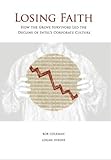Losing Faith: How the (Andy) Grove Survivors Led the Decline of Intel’s Corporate Culture
What has happened to Andy Grove’s Intel? A Wall Street Journal article dated November 1, 2006 stated that Andy Grove “won’t talk about current goings on at Intel. He does, though, talk about its past and wistfully. He helped make Intel one of the world’s greatest brands; for most men, that would be the prelude to a retirement full of self-satisfaction. Instead, there is much regret that Andy Grove’s Intel wasn’t able to use its brand name for even one other great thing besides microprocessors.” The cult of Andy Grove consisted of a core set of values expressed as certain behaviors that Grove himself forced on employees long before the Intel values were formally published and put on employee badges. What many outsiders don t know is that management s actions within Intel’s corporate culture were inconsistent with the published values. After Grove’s departure, this gap between management behaviors and the published values was amplified, establishing the impetus for the decli
List Price: $ 29.95
Price: $ 11.52
Check This:
 The Six Sigma Handbook: The Complete Guide for Greenbelts, Blackbelts, and Managers at All Levels, Revised and Expanded Edition
The Six Sigma Handbook: The Complete Guide for Greenbelts, Blackbelts, and Managers at All Levels, Revised and Expanded EditionThe most comprehensive Six Sigma reference available, now revised and expanded. Completely rewritten and reorganized, this second…
 Six Sigma For Dummies
Six Sigma For DummiesThe world’s largest and most profitable companies – including the likes of GE, Bank of America, Honeywell, DuPont, Samsung, St…
 Six Sigma Workbook For Dummies
Six Sigma Workbook For DummiesImprove your efficiency — and bring in big profits!Need help implementing or understanding Six Sigma? Want to take this powerful …
 The Certified Six Sigma Black Belt Handbook
The Certified Six Sigma Black Belt HandbookThe Certified Six Sigma Black Belt Handbook is the most comprehensive reference for all Six Sigma Black Belts (or anyone planning …



You Reap What You Sow,
This is a good read regarding the decline of the Intel Corporation. The book is based primarily upon the complaint that the corporation’s employees are not held accountable for their actions and failures, especially when the actions are not in compliance with the corporation’s own written codes of conduct and behavior. The authors attack the typical band-aide approach to many of the corporation’s problems (which are primarily outside the technical fields of microprocessors, and deal with the supply and customer service side of the corporation). The book targets Andy Groves successors as CEO and Chairman of the Board — their managerial style, lack of technical expertise in particular, and lack of involvement on a more personal level.
The book addresses the culture of those employees who survived the Grove tenure and their attitude of “entitledness” and the discord between these survivors and more recent employees. The book addresses a form of “careerism” (my term, not the authors)among the established managers. The authors criticism sounds a lot like the criticism found in some books about the Army officers “ticket punching” during the Vietnam era — heck, it sounds a lot like the successfully promoted folks at the hospital where I work.
The authors play with kid gloves when the subject of Andy Grove comes up. They only more than hint that his “in-your-face” management style directly contributed to Intel’s decline. They do not even discuss the Pentium debacle under Grove and the public relations disaster that ensued.
The authors also lightly touch upon the technical competence and backgrounds of Grove’s successors, and this is important since they are not the technical geniuses that founded or nurtured Intel (Noyce, Moore, and Groves)– most of their experience is not discussed but it is in marketing and other non-technical fields.
This is another good book discussing the ills of big corporations that lose their way in a fast changing world and fail to keep pace, especially after a level of arrogance rises within the corporation — is Intel falling from its lofty heights just like IBM did — is Microsoft not far behind. Stock holders should look closely at the trend of mis-management and the subsequent loss of billions of dollars (especially in bad acquistions and lack of overall business planning) that could have been paid out in dividends. Stockholders should hold the board of directors more responsible for rubber stamping poor CEO and chairman of the board’s decisions/performance and not holding them more accountable.
Was this review helpful to you?

|They tell it like it is!,
Based on my 18 years at Intel (’79-’97), the authors do an excellent job of accurately describing the Intel culture throughout Intel’s 38 year history. They explain the good and the bad and the ugly. This book can be a wakeup call for Intel and all of its employees and shareholders. The abuse of power during the Grove era comes with a price (what goes around, comes around). The advice that the authors provide is right on!
Was this review helpful to you?

|